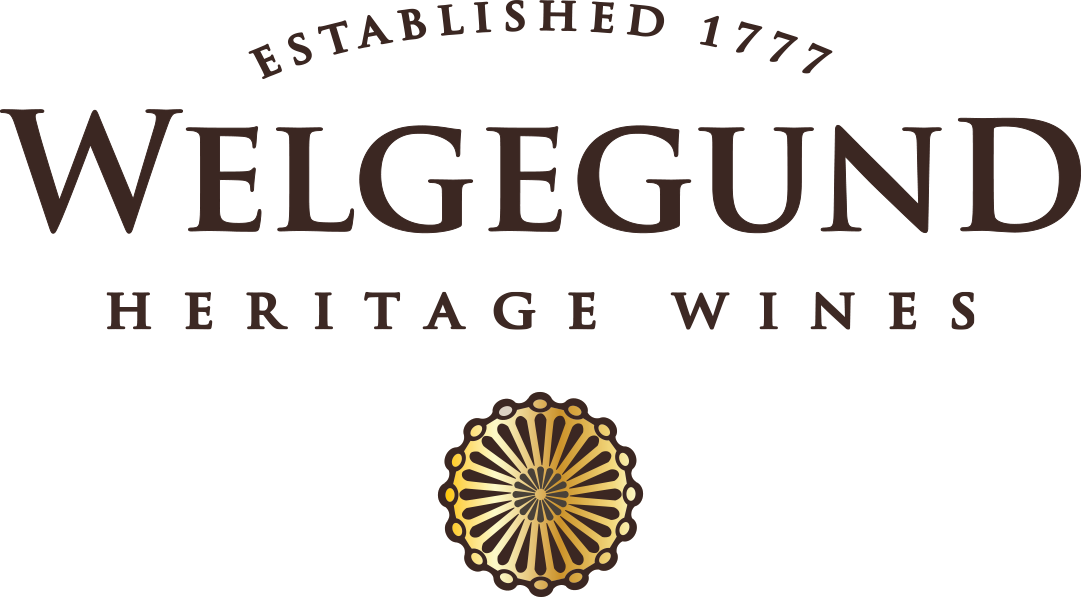“The harvest at Welgegund Heritage Wines in Wellington began early at the end of January. The Carignan and Grenache Noir were picked first, followed by the Chenin Blanc in early February. The Shiraz was harvested in the middle of the month and Cinsault completed the 2019 harvest late in February. On reflection of the harvest and from what is showing in the cellar, I am very optimistic. The 2019 harvest looks very promising and I believe it to be one of our best. The reds are showing excellent colour with fruit-driven savoury notes, and the Chenin extreme complexity, finesse and purity.’
The quality of our fruit, despite some challenging circumstances over the past few years, is testament to our unique fingerprint of terroir and climate and the nature of our very old vines. Planted in the ancient decomposed granite of the foothills of the Hawequa mountains and protected by the cooling breezes funnelling down the valley, our dry land, bush vines offer low yields of fruit with exceptional concentration and depth of flavour.
After the severe drought in 2017, we were pleased to receive solid rainfall during the winter of 2018 and the 2018/2019 summer was cooler than usual. All our vineyards are dryland, which means they are not irrigated, which despite many benefits, can be very challenging. Counteracting the effects of the drought, our cover crops of barley, rye and bitter lupins, provided a moisture safety net and improved soil quality. The soils of our Chenin Blanc, Shiraz, Cinsault and Carignan Block vineyard have a relatively high moisture content resulting from their relatively high clay content.
At Welgegund we strive to craft wines of authenticity and distinction, paying careful attention to the vines and minimising our intervention in the cellar, which allows vineyard and terroir expression to create wines true to their cultivar and their provenance. This gentle style of winemaking encourages the natural extraction of aroma, colour and flavour. One of the most important factors when following this philosophy, is getting harvest dates correct. Grapes are tasted and analyses conducted regularly so that picking is done at the perfect time for each varietal. All our fruit is picked by hand into small crates, a labour of love when harvesting old bush vines.
We have fermented five different batches of Chenin Blanc; two in tank with commercial yeast added and fermenting at cooler temperatures, giving off lovely passion fruit, guava, flowers and nectarine peach aromas and three batches in 500-litre, first-fill French oak barrels from different coopers. Fermentation was ‘all natural’ to preserve the identity of the old vineyard and has created our purest expression of Chenin Blanc, with pear, stone fruit, lime zest and citrus aromas evident. A blend of only the best components will be bottled.
Different batches of Cinsault were also fermented to add dimension and character to the final blend and these include batches whole bunch fermentation in 500-litre French oak barrels, one part with the stem and the other destemmed. This will add to the structure and ensure early oak integration. Other components were fermented in stainless steel tanks to preserve the savoury aromas of the juice. A halfway ‘natural ferment had different commercial yeasts added later, which has enhanced complexity.
Fermentation of our Grenache was also partly natural, with different yeasts added later for desired layering and complexity. A large portion of the wine is being aged unoaked, to retain fresh fruity aromas, with the balance in 2nd and 3rd-fill, 500-litre, lightly toasted French oak barrels.
‘These are exciting times in the cellar, and I am looking forward to an all-round fine offering of Welgegund wines this year: fresh with a wealth of fruit, richness, texture and depth of flavour.’

